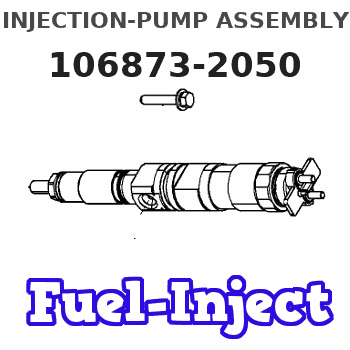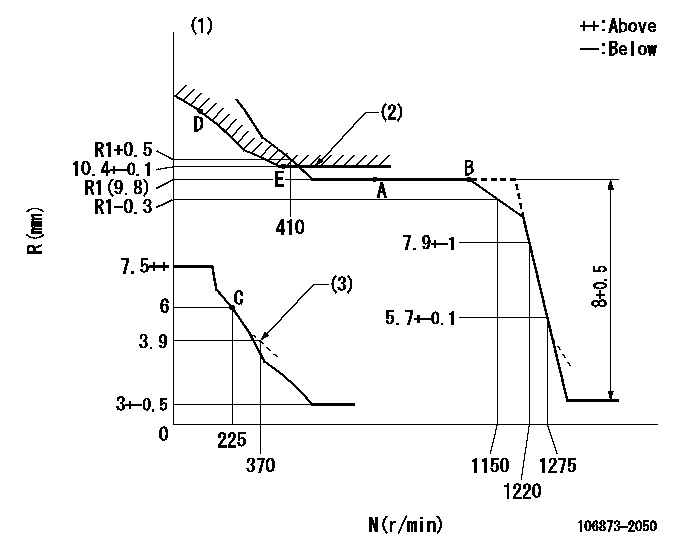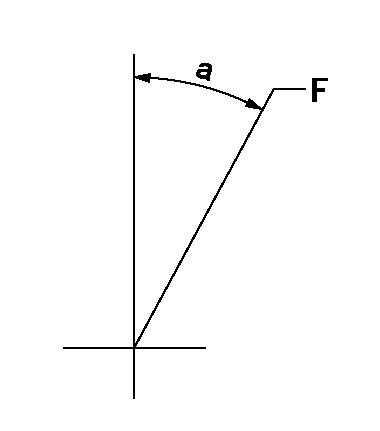Information injection-pump assembly
ZEXEL
106873-2050
1068732050
MITSUBISHI
ME091470
me091470

Rating:
Service parts 106873-2050 INJECTION-PUMP ASSEMBLY:
1.
_
7.
COUPLING PLATE
8.
_
9.
_
11.
Nozzle and Holder
ME056817
12.
Open Pre:MPa(Kqf/cm2)
17.7(180)/21.6(220)
15.
NOZZLE SET
Include in #1:
106873-2050
as INJECTION-PUMP ASSEMBLY
Cross reference number
ZEXEL
106873-2050
1068732050
MITSUBISHI
ME091470
me091470
Zexel num
Bosch num
Firm num
Name
Calibration Data:
Adjustment conditions
Test oil
1404 Test oil ISO4113 or {SAEJ967d}
1404 Test oil ISO4113 or {SAEJ967d}
Test oil temperature
degC
40
40
45
Nozzle and nozzle holder
105780-8140
Bosch type code
EF8511/9A
Nozzle
105780-0000
Bosch type code
DN12SD12T
Nozzle holder
105780-2080
Bosch type code
EF8511/9
Opening pressure
MPa
17.2
Opening pressure
kgf/cm2
175
Injection pipe
Outer diameter - inner diameter - length (mm) mm 8-3-600
Outer diameter - inner diameter - length (mm) mm 8-3-600
Overflow valve
132424-0620
Overflow valve opening pressure
kPa
157
123
191
Overflow valve opening pressure
kgf/cm2
1.6
1.25
1.95
Tester oil delivery pressure
kPa
157
157
157
Tester oil delivery pressure
kgf/cm2
1.6
1.6
1.6
Direction of rotation (viewed from drive side)
Right R
Right R
Injection timing adjustment
Direction of rotation (viewed from drive side)
Right R
Right R
Injection order
1-2-7-3-
4-5-6-8
Pre-stroke
mm
4.8
4.75
4.85
Beginning of injection position
Governor side NO.1
Governor side NO.1
Difference between angles 1
Cyl.1-2 deg. 45 44.5 45.5
Cyl.1-2 deg. 45 44.5 45.5
Difference between angles 2
Cal 1-7 deg. 90 89.5 90.5
Cal 1-7 deg. 90 89.5 90.5
Difference between angles 3
Cal 1-3 deg. 135 134.5 135.5
Cal 1-3 deg. 135 134.5 135.5
Difference between angles 4
Cal 1-4 deg. 180 179.5 180.5
Cal 1-4 deg. 180 179.5 180.5
Difference between angles 5
Cal 1-5 deg. 225 224.5 225.5
Cal 1-5 deg. 225 224.5 225.5
Difference between angles 6
Cal 1-6 deg. 270 269.5 270.5
Cal 1-6 deg. 270 269.5 270.5
Difference between angles 7
Cal 1-8 deg. 315 314.5 315.5
Cal 1-8 deg. 315 314.5 315.5
Injection quantity adjustment
Adjusting point
-
Rack position
9.8
Pump speed
r/min
700
700
700
Each cylinder's injection qty
mm3/st.
112
108.6
115.4
Basic
*
Fixing the rack
*
Standard for adjustment of the maximum variation between cylinders
*
Injection quantity adjustment_02
Adjusting point
C
Rack position
6+-0.5
Pump speed
r/min
225
225
225
Each cylinder's injection qty
mm3/st.
12
10.2
13.8
Fixing the rack
*
Standard for adjustment of the maximum variation between cylinders
*
Injection quantity adjustment_03
Adjusting point
A
Rack position
R1(9.8)
Pump speed
r/min
700
700
700
Average injection quantity
mm3/st.
112
111
113
Basic
*
Fixing the lever
*
Injection quantity adjustment_04
Adjusting point
D
Rack position
-
Pump speed
r/min
100
100
100
Average injection quantity
mm3/st.
120
100
140
Fixing the lever
*
Remarks
After startup boost setting
After startup boost setting
Timer adjustment
Pump speed
r/min
900
Advance angle
deg.
1.4
Load
3/4
Timer adjustment_02
Pump speed
r/min
1100
Advance angle
deg.
5
4.5
5.5
Load
4/4
Remarks
Finish
Finish
Test data Ex:
Governor adjustment

N:Pump speed
R:Rack position (mm)
(1)Tolerance for racks not indicated: +-0.05mm.
(2)Excess fuel setting for starting
(3)Damper spring setting
----------
----------
----------
----------
Speed control lever angle

F:Full speed
----------
----------
a=20.5deg+-5deg
----------
----------
a=20.5deg+-5deg
0000000901

F:Full load
I:Idle
(1)Stopper bolt setting
----------
----------
a=10deg+-5deg b=25deg+-3deg
----------
----------
a=10deg+-5deg b=25deg+-3deg
Stop lever angle

S:Stop the pump.
(1)Rack position = aa
(2)Stopper bolt setting
(3)Free (at shipping)
----------
aa=3.8-0.5mm
----------
a=10.5deg+-5deg b=56.5deg+7deg-5deg
----------
aa=3.8-0.5mm
----------
a=10.5deg+-5deg b=56.5deg+7deg-5deg
0000001501 MICRO SWITCH
Adjustment of the micro-switch
Adjust the bolt to obtain the following lever position when the micro-switch is ON.
(1)Speed N1
(2)Rack position Ra
----------
N1=325r/min Ra=5.5+-0.1mm
----------
----------
N1=325r/min Ra=5.5+-0.1mm
----------
Timing setting

(1)Pump vertical direction
(2)Coupling's key groove position at No 1 cylinder's beginning of injection
(3)-
(4)-
----------
----------
a=(40deg)
----------
----------
a=(40deg)
Information:
The Primary Engine Checks consist of quick and easy procedures that could identify the problem with a minimum loss of time. Always make these checks before starting the more involved troubleshooting procedures.Whenever a problem is found and corrected, always run the test again to that point to be sure there is not a combination of problems. When the problem has been corrected and the complaint resolved, stop the test. Do not continue through the complete procedure unless it is necessary. Possible Causes/Corrections Prestart ChecksMake sure the air filter elements are in good condition and are not plugged. Also, make sure the engine oil and coolant are at the correct levels. Check Accelerator LinkageTo check the linkage adjustment, push the pedal down until it hits the stop. If the linkage adjustment is correct, the governor linkage will move to the break-over position when the pedal is against the stop. This is shown by clearance on both sides of the tang (see the illustration). When there is clearance on both sides of the tang, the governor linkage is adjusted correctly to permit the engine to operate at high idle. If clearance is not present on both sides of the tang, adjust the governor linkage to give the needed clearance.
Governor Control Linkage Adjustment
(1) Clearance on both sides of tang. (2) Governor control linkage. (3) Pedal (full travel). (4) Governor control. (5) Lever assembly. Check Vehicle TachometerInstall the 6V3121 Multitach Group. Start the engine and make sure that the vehicle tachometer is accurately indicating engine rpm. Some electric vehicle tachometers can be adjusted. Correct the tachometer as required. A defective tachometer can cause operation at the wrong engine rpm, this can give the feel of low power. Check For Air In The FuelDisconnect the fuel return line. With the engine in operation, let the fuel from the injection pump housing flow into a container. Look for air bubbles in the fuel coming from the return line. Approximately 5 to 100 visible air bubbles in the fuel is normal. If there is excessive air in the fuel find the cause and correct it. Such as checking all fuel lines and connections for leaks and repair or replacement of parts as needed. Check Fuel API Gravity RatingCaterpillar diesel engines are set in production to produce rated power with a fuel of 35 API gravity (0.85 specific gravity). This limit provides a grade of fuel that aids engine starting and avoids vapor lock. Fuel with higher API gravities (i.e., lower specific gravities), will produce less horsepower at the factory power setting and vice versa for lower than 35 API gravity fuels. The engine fuel setting should not be adjusted to compensate for a power loss with fuels lighter than 35 as fuel system component life may be decreased.For more information see Special Instruction Form No. SEHS7067, Fuel Recommendations For Caterpillar Diesel Engines. Also, Special Instruction, Form No. SEHS6947 has fuel correction factors and tables. Check For Proper Fuel Heater ApplicationMake sure that fuel heaters are
Governor Control Linkage Adjustment
(1) Clearance on both sides of tang. (2) Governor control linkage. (3) Pedal (full travel). (4) Governor control. (5) Lever assembly. Check Vehicle TachometerInstall the 6V3121 Multitach Group. Start the engine and make sure that the vehicle tachometer is accurately indicating engine rpm. Some electric vehicle tachometers can be adjusted. Correct the tachometer as required. A defective tachometer can cause operation at the wrong engine rpm, this can give the feel of low power. Check For Air In The FuelDisconnect the fuel return line. With the engine in operation, let the fuel from the injection pump housing flow into a container. Look for air bubbles in the fuel coming from the return line. Approximately 5 to 100 visible air bubbles in the fuel is normal. If there is excessive air in the fuel find the cause and correct it. Such as checking all fuel lines and connections for leaks and repair or replacement of parts as needed. Check Fuel API Gravity RatingCaterpillar diesel engines are set in production to produce rated power with a fuel of 35 API gravity (0.85 specific gravity). This limit provides a grade of fuel that aids engine starting and avoids vapor lock. Fuel with higher API gravities (i.e., lower specific gravities), will produce less horsepower at the factory power setting and vice versa for lower than 35 API gravity fuels. The engine fuel setting should not be adjusted to compensate for a power loss with fuels lighter than 35 as fuel system component life may be decreased.For more information see Special Instruction Form No. SEHS7067, Fuel Recommendations For Caterpillar Diesel Engines. Also, Special Instruction, Form No. SEHS6947 has fuel correction factors and tables. Check For Proper Fuel Heater ApplicationMake sure that fuel heaters are
